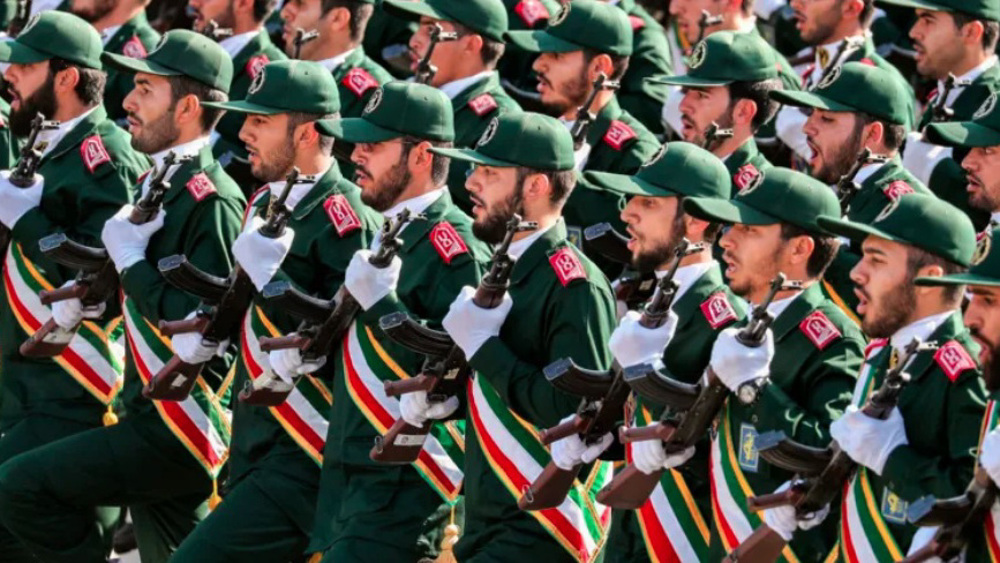Iraqi popular forces important in Daesh fight: Analyst
Press TV has interviewed James Petras, a Middle East expert in New York, about the top commander of Iraq’s Popular Mobilization Units saying his forces will continue to assist army troops in their operation to liberate Fallujah from the Daesh Takfiri terrorist group.
A rough transcription of the interview appears below.
Press TV: Well we see the basic attack is on Fallujah to try to liberate it, the significance of now the Iraqi military and the Iraqi Volunteer Mobilization Forces being able to work together to coordinate this attack on Fallujah.
Petras: This is a very positive measure because the government by itself has not been that effective and the presence of militias I think has been a very important ingredient in the capacity to defeat Daesh.
I think the question remains whether the United States is supporting or opposing the liberation of Iraq particularly because the fighting forces have very close relationship with Iran and they have a very decided position opposing not only the Daesh in Iraq but also in Syria and in Yemen. I think one needs to put this battle in this larger perspective and whether the United States is simply trying to maintain equilibrium between Daesh and the Iraqi government or whether in fact it opposes Daesh.
Press TV: Well let’s look at, you mentioned both Syria and Iraq and also you mentioned Yemen but I want to look at the progress that both the forces in Syria and the forces in Iraq are making against Daesh in general. Do you think that we have started to see the beginning of the end of the terrorist group because initially when they move in, especially when they moved into Iraq we saw so much fear by people because of the horrific nature of their crimes and even we saw the military even just not standing there, they are lying in certain cities very intimidated but now we seem to see a change in all of this and do you think that this is the beginning of the end of Daesh?
Petras: It is difficult to say. I think the opposition to Daesh has grown particularly with the addition of the Kurds but you have a very important enemy here that supports Daesh and that is the alliance between Saudi Arabia and Daesh, Turkey and Daesh and even Israel has joined in. So one has to look at the big picture and say well there has been progress. One cannot simply ride off Daesh because it has very big support from Turkey and Saudi Arabia.
So this is going to be a prolonged struggle until Washington decides that it no longer wants to work with Saudi Arabia and Turkey and that is not on the cards right now.
Press TV: Well what about Daesh has also threatened of course not only this region but also many countries around the world including of course even the United States itself. Why wouldn’t really though many would say that Washington was behind the creation of Daesh, why wouldn’t they want to stop it now seeming that it has gotten out of control and if you had named three entities, you have said Saudi Arabia, you have said Turkey and you have said Israel, if the United States really wanted to stop this group that they call the number one terrorist group or threat in the world, why wouldn’t they use the sanction regime against these countries?
Petras: Well I think Washington has a big agenda. It is seeking to dominate world politics at this time. I think the build-up of arms and nuclear arms on the frontier of Russia, I think that Washington’s power grab in Ukraine, its efforts to overthrow the governments in South America, the aggression that is being manifested against China, this is part of a world scheme in which they use these terrorist groups with the idea that somehow they can take advantage of the weakening of existing governments and seize power. This has not been the case but they have dislocated governments like Gaddafi in Libya, they have weakened Bashar al-Assad and they have certainly taken parts of Iraq and Afghanistan.
So I think one cannot see this simply as a defense mechanism against Washington. They are ... regimes that [are] willing to tolerate these terrorists even in the United States as part of the global attempts to dislodge Russia, Iran, China and the South American independent countries and I think this is a problem.
UK engaged in 'systematic' suppression of pro-Palestine voices: Report
Hundreds of Greeks protest US warship arrival in Crete
Iran warns Trump against decisions based on false information
Iran embassy rejects 'fabricated' French reports on domestic affairs
Trump’s military buildup against Iran on Netanyahu’s behalf is a gambit doomed to fail
Iran dismisses US 'big lies' on nuclear, missile programs
CIA‑founded NGO admits deploying Starlink satellites for Iran riots
VIDEO | French comedian targeted by Rothschild and Epstein for his shows on Palestine














 This makes it easy to access the Press TV website
This makes it easy to access the Press TV website